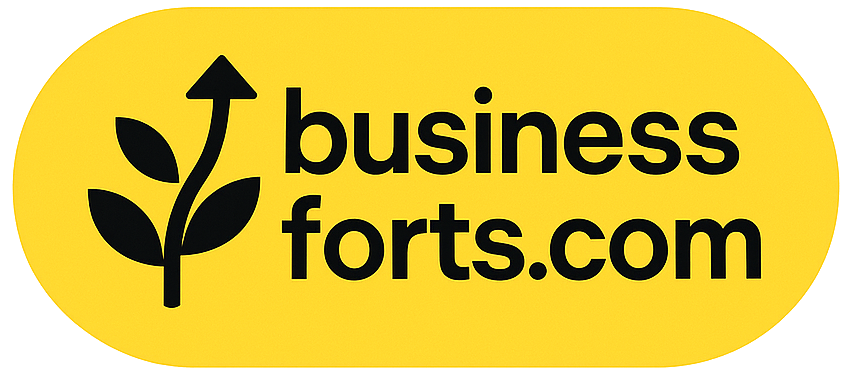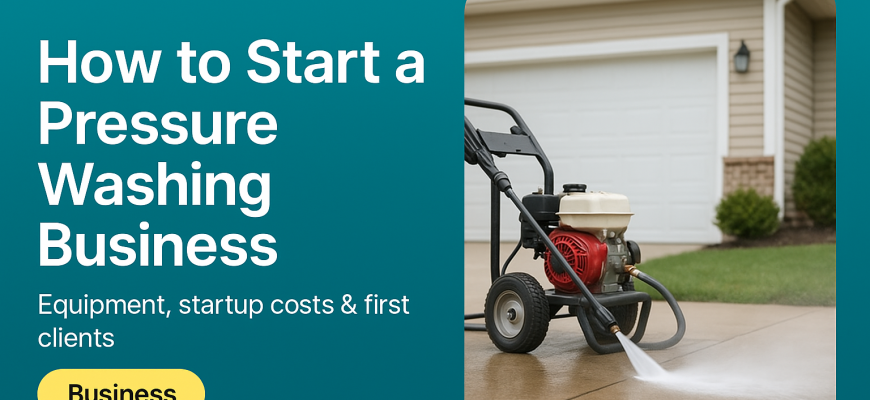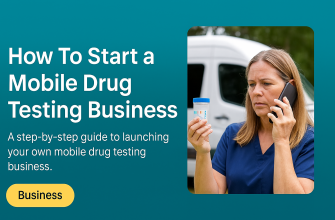Starting your own pressure washing business can be a game-changer. Imagine being your own boss, setting flexible hours, and earning great income by transforming dirty driveways and grimy patios into sparkling clean spaces. Even though pressure washing has traditionally been a male-dominated trade, women are breaking barriers in home services – in fact, women-owned businesses in home services grew 38% last year, more than any other category. That means now is the perfect time for you to dive in and build a thriving business in this field.
First off, you absolutely can do this. Don’t let anyone tell you it’s “man’s work” – one industry pro puts it this way: “mans work seems to change based off what men want to do, so don’t listen to that”. With the right plan and attitude, you can succeed and even outshine the skeptics. This guide will walk you through step-by-step how to start a pressure washing business, from planning and permits to equipment and marketing.
- Why Pressure Washing? Key Benefits for Women Entrepreneurs
- Step 1: Research the Market and Learn the Skills
- Step 2: Write a Business Plan and Choose a Business Structure
- Step 3: Handle Licensing, Permits, and Insurance
- Step 4: Purchase the Right Equipment (Without Breaking the Bank)
- Step 5: Practice, Practice, Practice (and Prioritize Safety)
- Step 6: Set Your Pricing and Services
- Step 7: Market Your Business and Find Your First Clients
- Step 8: Manage Your Time and Maintain Work-Life Balance
- Step 9: Deliver Excellent Service and Build Your Reputation
- Step 10: Plan for Growth and Scale Up (When You’re Ready)
- Conclusion: You’ve Got This!
Why Pressure Washing? Key Benefits for Women Entrepreneurs
Before we jump into the steps, let’s look at why a pressure washing venture is such a great opportunity – especially for women entrepreneurs looking for financial independence and work-life balance:
-
Low Startup Costs: Unlike many businesses, you don’t need a fortune to start. You can begin with a standard pressure washer and basic cleaning materials. Compared to other businesses, startup costs are low while profit margins are “out-of-this-world” – some pressure washing owners even earn $1,000 a day or more!
-
Flexible Schedule: Running a pressure washing business offers time flexibility. You can start part-time, schedule jobs around family or other commitments, and ramp up to full-time when you’re ready. You choose your hours – it’s your business, after all.
-
Be Your Own Boss: This path is a gateway to being in control of your career. You call the shots and make the decisions. That independence can be incredibly empowering, and it lets you build a business aligned with your values and lifestyle.
-
High Demand & Growth Potential: There’s strong demand for pressure washing – homeowners and businesses want clean, attractive properties. Once you build a good reputation, you’ll get repeat customers and referrals. You can also expand your services (e.g. adding window or gutter cleaning) as you grow.
-
Personal Satisfaction: It’s surprisingly satisfying work – you get instant, visible results from cleaning a dirty surface. Each job becomes a before-and-after transformation you can be proud of, boosting your confidence as a skilled professional.
Ready to roll? Keep these benefits in mind as motivation. Now let’s break down how to actually start your pressure washing business, step by step.
Step 1: Research the Market and Learn the Skills
Every great business starts with a bit of homework. Begin by researching your local market and learning the skills of the trade:
-
Understand the Demand: Look at your community – are there lots of homes with driveways, patios, or siding that could use cleaning? Check online services or local listings to see what pressure washing services are offered in your area and what they charge. Knowing the demand and competition will help you identify your niche and competitive edge.
-
Learn How to Pressure Wash Safely: If you’re new to pressure washing, invest time in learning proper techniques. Watch tutorial videos, read guides, or even see if you can shadow someone experienced. Start practicing on your own property or offer to clean a friend’s driveway for free to get the hang of it. Experts suggest starting with simple projects like flat driveways or sidewalks – these yield dramatic results with little risk of damage while you hone your skills.
-
Understand the Industry: Read about successful pressure washing businesses and industry trends. This will give you ideas on what services are in demand (for example, house exteriors, decks, driveways, commercial properties) and how others find success. The more you know about what works, the more confidently you can start your own venture.
Take notes as you research. You’ll use this knowledge to shape your business plan, decide which services to offer first, and avoid common pitfalls. Remember, every expert was once a beginner – so embrace learning with enthusiasm!
Step 2: Write a Business Plan and Choose a Business Structure
Next, set the foundation for your business by planning it out and taking care of some big-picture decisions. As a savvy entrepreneur (which you are!), you’ll want a simple business plan and the right legal structure in place:
-
Draft Your Business Plan: This doesn’t have to be a 50-page thesis – just a clear outline of what your business will do and how it will succeed. Include things like your service list (e.g. residential pressure washing for decks, driveways, and fences), your target market (perhaps busy homeowners in specific neighborhoods), and a basic pricing strategy. Also think about your expenses (equipment, fuel, marketing) and set some income goals. Writing these details down turns your dream into a concrete plan. Even if you don’t need a loan, a business plan guides your actions and keeps you on track.
-
Choose Your Business Structure: Decide how you’ll legally organize your company. Many solo entrepreneurs start as a sole proprietorship because it’s the simplest and cheapest way to begin. If you go that route, just know you and the business are the same legal entity, so you’re personally liable for any debts or lawsuits. To protect your personal assets, you can consider forming an LLC (Limited Liability Company) once you can afford the small additional cost. An LLC creates a separate legal entity for the business, which means if something goes wrong, your personal finances are safer. You could also explore an S-Corp or other structures if you plan to grow big or have partners, but for many starting out, sole prop or LLC is ideal.
-
Name Your Business: Pick a memorable, professional name that reflects you or your service (for example, “[Your Name] Power Cleaning” or something catchy). Since you are in a male-dominated field, you might even highlight your identity (some women-led businesses use names that subtly signal female ownership, if that appeals to you). Once you choose a name, you can register it with your local authorities and secure a domain name for your website.
Taking time to plan and set up your business structure might not be the flashiest part of entrepreneurship, but it’s incredibly important. It’s like laying the foundation of a house – it supports everything else. Plus, going through this process will make you feel official and confident about launching your business.
Step 3: Handle Licensing, Permits, and Insurance
With your plan in hand, it’s time to get all the legal ducks in a row. This step is crucial to make sure you operate legitimately and protect yourself and your business. Here’s what to take care of:
-
Business License and Registration: Check with your city or county about obtaining a business license. Many places require a simple registration and a small fee (typically under a few hundred dollars) to legally operate a business. It’s usually a quick process – fill out a form, pay the fee, and you’re officially in business.
-
Special Permits or Contractor’s License: Requirements vary by location, so ask your local authorities what permits or licenses you might need. Some states have specific rules for pressure washing. For example, in California, you actually need a contractor’s license for pressure washing, which requires some prior experience. Most states are less strict, but it’s always best to be sure you’re following the rules. You may also need an environmental permit if you’ll be disposing of water/chemicals into storm drains (since runoff can affect the environment). Don’t let this scare you – many small operators won’t need more than a standard business license, but it’s wise to double-check.
-
Get an EIN (Tax ID): An Employer Identification Number (EIN) from the IRS is essentially a social security number for your business. It’s free to obtain and useful even if you have no employees – it lets you open a business bank account and simplifies tax time. You can apply online on the IRS website in minutes.
-
Business Insurance – Don’t Skip It: This is especially important in a service business like pressure washing. At minimum, get liability insurance to cover any property damage or injuries that could happen on the job. As the saying goes, “don’t wash anything until you’re insured.” One experienced pressure washer warned that without insurance, “all you’d have to do is kill one expensive bush and you’re sunk”. Insurance gives you peace of mind – if an accident happens (say, you accidentally crack a window or someone slips on wet pavement), your policy will cover the costs. Shop around for small business insurance; there are insurers who specialize in contractors and mobile businesses. As you grow, you might add more coverage (like equipment insurance or even worker’s comp if you hire staff), but starting with a solid general liability policy is key.
-
Consider a Business Bank Account: Once you have your licenses and EIN, open a separate business bank account. This helps keep your business finances separate from personal, which is important for taxes and liability. It also makes you look more professional (clients can write checks to your business name). Many banks have low-fee accounts for small businesses. Similarly, consider getting a business credit card for buying equipment or gas – it helps build credit in your company’s name and keeps expenses organized.
Dealing with paperwork isn’t the most exciting part of entrepreneurship, but each license or policy you obtain is a stepping stone to legitimacy and success. You’re not just someone with a pressure washer – you’re now a business owner, and that is something to be proud of!
Step 4: Purchase the Right Equipment (Without Breaking the Bank)
Time to gear up! The great thing about a pressure washing business is that you don’t need a ton of equipment to start. Here’s how to get what you need while keeping costs reasonable:
-
Start with Essential Equipment: At minimum, you will need a pressure washer (of course) and a few accessories. There are electric models and gas-powered ones; gas washers are more powerful (better for heavy-duty or professional use) but also pricier. You can start with a decent consumer-grade model if budget is tight, then upgrade as you earn money. Besides the washer itself, you’ll want high-pressure hoses, a spray gun/wand, and a set of nozzles that allow different spray patterns (from a gentle fan spray to a powerful pinpoint). Other handy tools include a surface cleaner (a brush attachment that makes flat surfaces like driveways much faster to clean) and extension wands for reaching high places. If you plan to do house siding or roofs, a ladder will be necessary too.
-
Safety Gear and Supplies: Don’t forget protective gear for yourself. Invest in a good pair of waterproof boots and gloves, and consider eye protection. A waterproof apron or coveralls can be useful on messy jobs. Also, stock up on cleaning detergents/soaps designed for pressure washing – certain surfaces (like wood decks or house exteriors) clean much better with the proper cleaning solution applied. Make sure any chemicals you use are environmentally friendly if possible, and follow the instructions for dilution and use.
-
Vehicle or Trailer: You’ll need a way to transport your equipment to job sites. In the beginning, this could be as simple as the trunk of your car or the back of an SUV, if your pressure washer is portable. Many pressure washers are fairly compact. As you advance, you might use a pickup truck or van. You can even get a trailer setup with a mounted pressure washer and water tank for a fully professional rig – but that’s not necessary at the start (those setups can cost tens of thousands, which you can hold off on until you’re earning good money). Use what you have and focus on getting your first clients.
-
New vs. Used vs. Rent: To save money, consider buying used equipment in good condition. Many people sell barely-used pressure washers online. Just test it out before buying if you can. Another option is to rent specialty equipment for occasional jobs. For example, if you get a one-time contract to do a huge commercial building, you could rent a more powerful washer for that project instead of buying one. Keep your initial costs low – remember, part of the appeal of this business is its low startup cost, so you don’t want to overspend before you have revenue coming in.
-
Make a Professional Impression: One little tip – once you have your gear, consider adding a logo or signage to your equipment or vehicle. Even if it’s just a magnetic sign on your car door with your business name and phone number, it helps advertise your new business wherever you go. You can also get a custom wrap or decals later when you have a dedicated work vehicle. Branding yourself from the get-go will make you look polished and established.
By assembling your equipment wisely, you set yourself up to start taking jobs without drowning in debt. Each time you invest in a new tool, think of it as another way to increase your efficiency or the range of services you can offer. And there’s a special thrill in seeing your toolkit come together – it makes the business feel very real!
Step 5: Practice, Practice, Practice (and Prioritize Safety)
Before you rush out to paid clients, make sure you’re confident in your skills and prioritizing safety – both for you and for your customer’s property. This step will save you headaches and build your professional reputation from day one:
-
Hone Your Technique: Practice using your pressure washer on a variety of surfaces. Each surface (wood, concrete, brick, vinyl siding, etc.) may require a different nozzle or distance to clean effectively without damage. Use your own driveway, patio, or fence as a training ground. Maybe Uncle Joe’s siding could use a wash – offer to do it for free or at cost of gas. The goal is to get comfortable with how the machine handles and how to tackle common cleaning jobs. The more you practice, the faster and more confidently you’ll work when you land real clients.
-
Learn to Avoid Damage: A pressure washer is powerful – it can damage surfaces if used incorrectly. You don’t want to accidentally strip paint off a client’s wall or crack a window. This is why practice is important. Always start spraying a new surface from a distance and gradually move closer if needed, rather than blasting full force upfront. Be mindful of things like electrical outlets, light fixtures, or delicate plants near the areas you’re washing. Also, never aim the spray at people or pets (it can cause injury). By mastering control of the pressure and spray angle, you’ll ensure you only deliver cleaning, not destruction!
-
Use Proper Safety Gear and Techniques: Always wear sturdy shoes with good traction (wet surfaces can be slippery) and eye protection when pressure washing – debris can fly back at you. If you’re working on a ladder to reach high places, follow ladder safety (have someone spot you if possible, and never overextend your reach – move the ladder instead). If you use cleaning chemicals, wear gloves and avoid breathing the mist. Safety first, always. Not only do you want to stay healthy, but being careless with safety could also hurt your business (one accident can set you back financially and emotionally). Show your clients that you take safety seriously – it builds trust.
-
Protect the Environment: Be mindful of where all that dirty water is going. If you’re washing driveways, the runoff might flow into storm drains. Try to use biodegradable detergents and avoid harsh chemicals so you aren’t polluting the water system. Some locales require you to block off storm drains or recover the water; make sure you’re following any local environmental regulations (this ties back to checking permits in Step 3). Being environmentally conscious is not only the right thing to do, it can also be a selling point for eco-aware customers.
-
Develop a System: As you practice, start developing a routine or checklist for each job. For example: walk around the property with the client to note any special concerns, set up your equipment in a safe spot, do a test spray on a small area, then proceed systematically (top to bottom on a wall, or one section of driveway at a time). Having a consistent system ensures you deliver quality results every time and don’t forget any steps.
Remember, confidence comes from competence. The more prepared you are, the more you’ll present yourself as a pro. By the time you start taking paying customers, you’ll know you can handle whatever job comes your way safely and effectively. This not only protects your clients and their property, but it also protects you and your business reputation.
Step 6: Set Your Pricing and Services
One of the trickiest questions when starting out is “How much do I charge?” Setting your pricing and defining your services clearly is essential for your business’s success and credibility. Here’s how to tackle it:
-
Define Your Services: Start with a short list of core services you will offer. For example, you might begin with residential pressure washing: house exteriors, driveways, sidewalks, decks, and patios are common jobs. You could also decide to clean fences, garage floors, or pool decks. Don’t stretch too far too soon – it’s okay to specialize in a few things at first (you don’t have to clean fleet trucks or commercial buildings right away unless you’re ready). List out what you can confidently clean with your equipment and skill. As you gain experience, you can expand this list to include more surfaces or even additional services like gutter cleaning or window washing (which pair nicely with pressure washing).
-
Research Local Rates: Find out what others in your area charge. You can call for quotes pretending to be a customer, or check their websites if prices are listed. Pressure washing services can be priced in various ways – some charge by the hour, others by the square foot or per job. To give you a general sense, many pressure washers charge around $40 to $100 per hour of work. Alternatively, for common jobs, there are average price ranges: for example, pressure washing an entire house might average $173 to $311 nationally, though this can vary by region and house size. A driveway might be, say, $100-$200 depending on size, etc. Use these numbers as ballpark figures to guide you.
-
Consider Your Costs and Income Goals: When pricing, account for your costs (fuel, detergents, equipment wear-and-tear, any dump fees for water recovery if applicable) and how much you want to make for your time. Don’t undersell yourself – women sometimes feel pressure to charge low, but remember you’re providing a valuable service. That said, as a newcomer, it can help to offer competitive rates or a first-time customer discount to drum up business. You can gradually raise your prices as you build a reputation.
-
Create Pricing Packages: It often helps to have a few simple packages or estimates to offer clients. For instance: a “Driveway Special” for a set price, or “House + Driveway combo” at a slight discount for booking both. Clear, packaged pricing can make it easier for customers (especially homeowners) to say yes. Just be sure you still maintain a good hourly rate for yourself within those packages.
-
Communicate Value: When discussing price with clients, focus on the value you provide – the homeowner gets a beautifully clean property without spending their own weekend toiling with rental equipment. You can highlight your professionalism, the quality of your work, and even the fact that they are supporting a woman-owned business (something many people will appreciate!). By confidently stating your price and what’s included, clients will sense that you’re worth it.
-
Be Willing to Adjust: As you get actual paying jobs, pay attention to how long each job takes versus what you charged. You might find you quoted too low for a particular large patio that ended up taking half a day, for example. It’s okay – adjust your future pricing based on real experience. The goal is that your rates are fair to the customer and fair to you. You deserve to be paid well for quality work.
Pricing can feel like a guessing game at first, but you’ll quickly gather data to refine it. The key is to start somewhere and remain adaptable. With each successful job, you’ll get a clearer sense of what the market will bear and what your time is worth. And nothing beats the feeling of earning your first dollars from a business you built yourself!
Step 7: Market Your Business and Find Your First Clients
Now for the exciting part: getting customers! Marketing might sound intimidating, but it’s really about letting people know how you can help them. You don’t need a huge budget to start – just some hustle and creativity. Here’s how to get those first clients and beyond:
-
Leverage Your Network: Begin with people you know. Let friends, family, neighbors, and colleagues know about your new pressure washing business. You might be surprised – Aunt Mary might want her patio cleaned, or a friend of a friend has been looking for someone to do their fence. Sometimes your first few jobs come from personal connections. Don’t be shy to mention your business on your personal social media or in conversations. Word of mouth is powerful (and free)!
-
Print Simple Flyers or Business Cards: One classic, low-cost tactic is to create a basic flyer advertising your services and introductory offer. One pressure washing entrepreneur shared that he printed simple flyers and “put them behind the flags on people’s mailboxes” around local neighborhoods, handing out thousands to get the word out. This grassroots approach can work if done respectfully (always follow local rules about flyers). Additionally, get some business cards made (you can do this cheaply online). Hand them out whenever the opportunity arises. For example, if you finish a job for a client, give them a few extra cards – “one for them, one for a neighbor, one for a friend”. That way, they can easily refer you.
-
Create an Online Presence: In today’s world, being online is essential. Fortunately, it’s easy and mostly free. Set up a Facebook business page and an Instagram account for your business name. Upload before-and-after photos of cleaning jobs (even if they’re just your own driveway to start) to showcase the results. Encourage friends to share or like your page for visibility. Also, register on Google My Business so that your business appears on Google Maps and local search results – this is important for local services. List your business on any free local directories or community bulletin boards online. As you grow, you might invest in a simple website. There are template-based website builders (Wix, Squarespace, etc.) that make it easy to create a professional-looking site to list your services and contact info. But if a website feels too much for now, focus on social media and Google – they can bring in a lot of leads early on.
-
Use Online Marketplaces: Consider signing up for platforms like Thumbtack, TaskRabbit, or Angi (Angie’s List) where homeowners seek contractors for jobs. Many people turn to these apps to find local service providers. It can be competitive, but often new businesses can get a few gigs and good reviews there, which then snowball into more clients.
-
Network in the Community: Sometimes landing bigger or steady clients comes from networking. Join local business groups or your chamber of commerce. If there are real estate agents or property managers you know or meet, tell them about your services – they often need reliable pressure washers to spruce up homes or commercial properties. One business owner credited joining a networking group (BNI – Business Network International) for significantly growing his client base. Find networking events or community meet-ups where you can introduce yourself as the owner of a new pressure washing business. Carry those business cards with you!
-
Offer a Great Intro Deal (and Ask for Reviews): To encourage people to give you a try initially, you could offer a first-time customer discount or a bonus (e.g. “Book a house washing and I’ll do your mailbox or front walkway for free”). Once you complete a job, if the customer is happy, kindly ask if they wouldn’t mind writing a quick review online (on your Facebook page or Google listing). Positive reviews early on are gold – they build trust for future clients and get your phone ringing more often.
-
Consistency and Branding: Use your status as a woman-owned business as a positive differentiator in your branding if you feel comfortable. For example, some clients (especially women homeowners or older adults) may actually feel more at ease hiring a woman to work around their home. You can highlight the care, attention to detail, and professionalism you bring. Perhaps have a slogan like “Friendly, Reliable Service – Woman Owned and Operated” if that resonates with you. Lean into what makes you unique in the market.
-
Social Media & Content: Keep engaging on your business social media. Share satisfying before/after photos or quick tips (“Spring cleaning tip: pressure wash your deck to prevent mildew buildup!”). This positions you as an expert and keeps your business visible to your followers. It’s also motivating to see your own gallery of work grow over time.
Marketing is an ongoing effort, but starting small and local is the way to go. Each happy customer can lead to several more. In a short time, the momentum will build – you’ll go from hustling for that first client to having a schedule booked weeks in advance! Remember, every big business started with just a few customers. Stay persistent and positive.
Step 8: Manage Your Time and Maintain Work-Life Balance
One fantastic advantage of running your own pressure washing business is the ability to design a schedule that fits your life. Many women entrepreneurs value flexibility – whether it’s caring for family, pursuing other passions, or simply avoiding burnout. Here’s how to manage your time smartly while still growing your business:
-
Create a Schedule That Works for You: Decide how many days per week and which hours you want to dedicate to your business. In the beginning, you might pressure wash on weekends or a couple of weekdays if you’re doing it part-time. As your own boss, you have control. If you have kids, maybe you schedule jobs during school hours. If you’re a night owl, perhaps you prefer late morning starts. Ensure you also block out personal or family time on your calendar. The beauty of entrepreneurship is that you can tailor your work around your life, not the other way around.
-
Be Realistic with Appointments: When booking jobs, give yourself buffer time for setup, travel, and the unexpected. If one job runs long, you don’t want to be late to the next. It’s better to under-promise and over-deliver on time. For instance, if a job should take 2 hours, maybe schedule it as a 3-hour block in case of surprises. This reduces stress. Also consider how many jobs you can comfortably handle in a day or week without feeling overwhelmed. Start modestly and increase as you get more efficient.
-
Use Tools to Stay Organized: Use a simple planner or a digital calendar to track your appointments, estimates, and invoices. There are even small business apps (some specifically for service businesses) that can help schedule clients and send reminders. You don’t need anything fancy at first – even a spreadsheet or notebook works. The key is to keep track of who is booked when, and any notes about their job (address, scope, etc.). Being organized will prevent the chaos that leads to work-life imbalance.
-
Prioritize Health and Rest: Pressure washing can be physical work. It’s important to take care of your body. Stay hydrated during jobs, use proper posture when lifting equipment, and take short breaks if you’re doing a long task (your results will be better when you’re not exhausted, too). Schedule days off just as you schedule work days. When you’re the boss, it’s easy to never “give yourself permission” to rest – but remember, you are the most important asset of your business. Taking a day to recharge isn’t lazy; it’s necessary for long-term success.
-
Set Boundaries with Clients: Being accommodating is great customer service, but you can still set reasonable boundaries. For example, maybe you decide you won’t work Sundays, or you prefer not to schedule after 6pm. That’s okay – communicate your availability clearly to clients. Most will respect that you have a life and other commitments. Also, if you work from home, set boundaries there too – have a dedicated space or time for “business mode” so that when you step away, you can truly focus on home or family.
-
Reflect and Adjust: Every few weeks, reflect on how your schedule is working. Are you consistently overbooked and feeling frazzled? Or do you have too much downtime and need to amp up marketing to fill your calendar? Adjust accordingly. The goal is a balance where your business thrives and you enjoy the freedom entrepreneurship promised. It might take a little experimentation to get it right.
Maintaining a healthy work-life balance is not just a buzzword – it’s crucial to sustain your motivation and happiness as a business owner. When you manage your time well, you’ll find you can handle business responsibilities and still have time for yourself and your family. That balance is a big part of why you started this journey, so protect it as you grow.
Step 9: Deliver Excellent Service and Build Your Reputation
Providing outstanding service is the heart of any successful business, and it’s especially true when you’re a local service provider. By wow-ing your customers, you’ll create a positive buzz that money can’t buy. Here’s how to build a rock-solid reputation that will keep clients coming and referrals flowing:
-
Go the Extra Mile for Quality: Always do your best work, even for small jobs. Pay attention to details – that little strip of walkway you could easily overlook, or the corners of the deck – and give them a thorough clean. Your goal is to leave every property sparkling and the customer delighted. Sometimes doing a tiny extra (like spraying down a small patio furniture set quickly) can be the cherry on top that the client remembers. Strive to have each customer say, “Wow, it looks even better than I expected!”
-
Professionalism and Friendliness: As a woman in a traditionally male field, you have a chance to really stand out through your professionalism and personal touch. Be friendly, respectful, and communicative with clients. Show up on time (or call ahead if you’re delayed). Dress in a tidy way — you might consider wearing a shirt with your logo or at least something clean and appropriate for work. Little things like a friendly chat, listening to the client’s concerns, and thanking them for their business make a strong impression. Alex Rivers (and any good business coach) would remind you that people buy from people they like and trust. So build that rapport.
-
Educate and Inform: Use your knowledge to help customers. If you notice their gutters are full while you’re washing the exterior, mention it politely and that you can help (either now or in the future if you decide to add that service). If a certain stain won’t come out, explain what it is and what else might be done. When people see that you’re knowledgeable and honest (not just trying to upsell them unnecessarily), they’ll trust you more and likely call you for future needs. You become not just a hired hand, but a valued advisor on maintaining their property.
-
Collect Testimonials and Reviews: After you complete a job and your customer is expressing happiness with the result, don’t be shy to kindly ask for a review or testimonial. Many will be happy to support you. You can say something like, “I’m so glad you’re pleased! As a small business owner, I would really appreciate if you could leave a quick review on my Facebook/Google page – it helps me grow.” Having 5-star reviews online will significantly boost your reputation and credibility. Future customers often read these before deciding to hire you. You can also collect written or video testimonials to use in marketing materials or on your website later.
-
Handle Issues Gracefully: Not every job will go perfectly – perhaps a stubborn oil stain only partially lifted, or there was a small misunderstanding about the scope of work. If anything didn’t meet expectations, address it head-on. Maybe you offer to come back and re-clean a trouble spot, or give a slight discount if a client genuinely isn’t happy (though if you’ve done everything right, this should be rare). How you handle a complaint can actually enhance your reputation. People appreciate businesses that take responsibility and make things right. It can turn an unhappy customer into a loyal one.
-
Build Relationships: Don’t view a job as a one-time transaction. Aim to build a long-term relationship with each client. Before you leave, you might mention, “I recommend doing this again in about a year – I’ll be happy to reach out next season to schedule if you’d like.” Keep a list of clients and follow up with them after some months with a friendly reminder for service. This kind of personal touch (which big companies often ignore) can set you apart and create repeat business, the easiest kind of business there is.
-
Stay Consistent: Reputations are built over time. Consistency is key – deliver the same high level of service whether it’s your first job or your hundredth. As you get busier, don’t cut corners. If needed, schedule a bit more time for each job to ensure quality doesn’t suffer. Your good name is worth more than squeezing in one extra appointment.
When you focus on excellent service, your work becomes your marketing. Each spotless driveway or mold-free wall is essentially an advertisement to the neighbors. Each happy client becomes a word-of-mouth ambassador for you. Over time, your reputation will precede you – you’ll get calls from people who heard “you’re the best in town”. And that reputation, combined with your authentic passion for your work, is something no competitor can take away from you.
Step 10: Plan for Growth and Scale Up (When You’re Ready)
As your pressure washing business gains traction, you might start thinking about the next level – how can you grow or streamline operations to earn more while maintaining that flexibility you love? Scaling a business is an exciting phase, and you can approach it in ways that suit your goals:
-
Increase Your Service Offerings: One way to grow is by offering additional, related services. This can maximize the revenue you get from each client. Common add-ons that complement pressure washing include gutter cleaning, window washing, solar panel cleaning, painting prep, or even minor landscaping clean-ups. For instance, after you wash a client’s driveway, maybe they’d also hire you to clean out their gutters while you’re there. You’ve already built trust with them. Start with services that use skills or tools you already have or can learn easily. As noted earlier, pressure washing itself can extend to various surfaces – perhaps you started with homes, but later you could take on commercial jobs (like storefronts or parking lots) which usually pay more. Expanding your menu can open up new income streams.
-
Raise Prices for Premium Value: As you become highly experienced and perhaps build a waiting list of clients, it might be time to increase your rates. If demand is outstripping your available time, that’s a signal that people value your service and you can charge a bit more. Even a small increase per job adds up and can improve your bottom line without working more hours. Never be afraid to charge what you’re worth, especially once you have a strong reputation backing you up.
-
Hire Help or Form a Team: If you reach a point where you have more work than you can handle alone (a great problem to have!), consider hiring an assistant or another pressure washing technician. Even hiring someone part-time to help with the labor can allow you to take on double the jobs or focus on bigger projects. When you make your first hire, you officially move from solo-preneur to boss – which comes with new responsibilities, but also can greatly increase your earnings and free up time. You’ll need to ensure you have proper insurance for employees and handle payroll, but many start with just a trusted friend or family member as a helper paid hourly. Training someone in “your way” of doing quality work will be key. Over time, you could even have multiple crews working while you focus on running the business and getting clients. How far you take it is up to you – some women may be happy staying a one-woman operation, while others might want to build an empire!
-
Streamline with Better Equipment: As funds allow, you might reinvest in more efficient equipment. For example, a higher-capacity pressure washer that cleans faster, a hot-water unit for tough grease stains, or a larger water tank so you don’t need the client’s water supply. Upgraded equipment can enable you to do jobs quicker or take on new types of work (like cleaning oily factory floors with hot water units). Just remember to balance the investment with expected returns – buy things that will directly help you make more money or save significant time.
-
Keep Learning and Maybe Join Industry Groups: Scaling up is also about continuously improving your knowledge. Stay updated on the latest techniques, soaps, and technologies in pressure washing. Consider joining professional associations like PWNA (Power Washers of North America) or local contractor groups. These organizations often offer resources, training, and networking opportunities that can help you grow your business further. Plus, being a member can boost your credibility (you can mention your membership in marketing materials).
-
Maintain Quality as You Grow: Finally, growth should never come at the expense of quality. If you find yourself getting too busy, rather than cutting corners, it’s time to delegate or scale back marketing until you’re ready. Each new level of growth (whether it’s more services, higher volume of jobs, or employees) will come with a learning curve. Tackle it one step at a time. You might recall why you started this business – for many, it was for freedom and personal satisfaction. Scaling is meant to amplify those, not diminish them. So grow in a way that still aligns with the life you want.
Growth is a journey, and there’s no rush to “conquer the world” overnight. The beauty of a pressure washing business is you can grow at your own pace. Whether you aim to have a large company one day or just a steady solo operation that provides a comfortable living, the choice is yours. The important thing is, you’ve started – you’ve taken the leap into entrepreneurship, and that already sets you apart.
Conclusion: You’ve Got This!
Starting a pressure washing business as a woman entrepreneur is an exciting adventure. It’s not just about cleaning surfaces; it’s about claiming your independence, shattering stereotypes, and building something of your very own. Along the way, you’ll experience the joy of mastering new skills and the pride that comes when a client beams at their gleaming driveway you just cleaned.
Remember, every big success story begins with a single step. You’ve learned that the startup costs are low and manageable, the demand is out there, and you have the capability to do this. You’ve also gathered that women all over are entering trades and thriving – you’re in great company on this journey. Whenever doubt creeps in, remind yourself why you started: perhaps for your family’s future, to be your own boss, or to show the world what you’re made of. Keep that reason close to your heart.
As a women’s business coach, I’ve seen firsthand how businesses like this can transform lives. You deserve success, and with careful planning, hard work, and the supportive guidance in this guide, you are well on your way to achieving it. So take that next step – whether it’s buying your pressure washer, landing your first client, or expanding your services – with confidence and courage.
Your pressure washing business awaits – go out there and make it shine!









